 W
WJohn Banim, was an Irish novelist, short story writer, dramatist, poet and essayist, sometimes called the "Scott of Ireland." He also studied art, working as a painter of miniatures and portraits, and as a drawing teacher, before dedicating himself to literature.
 W
WBrendan Francis Aidan Behan was an Irish poet, short story writer, novelist and playwright who wrote in both English and Irish. He was named by Irish Central as one of the greatest Irish writers of all time.
 W
WDavid Butler is an Irish novelist, short story writer, playwright, and poet. He has won several literary prizes, such as the Ted McNulty Award from Poetry Ireland and the Féile Filíochta International Award and the Fish Short Story Award.
 W
WMichael Feeney Callan is an Irish novelist and poet. An award winner for his short fiction, he joined BBC television drama as a story editor, and wrote screenplays for The Professionals, and for American television.
 W
WPatrick Chapman is an Irish poet, writer and screenwriter, born in 1968.
 W
WAustin Clarke, born in 83 Manor Street, Stoneybatter, Dublin, was one of the leading Irish poets of the generation after W. B. Yeats. He also wrote plays, novels and memoirs. Clarke's main contribution to Irish poetry was the rigour with which he used technical means borrowed from classical Irish language poetry when writing in English.
 W
WSaint Colmán of Cloyne, also Colmán mac Léníne, was a monk, founder and patron of Cluain Uama, now Cloyne, County Cork, Ireland, and one of the earliest known Irish poets to write in the vernacular.
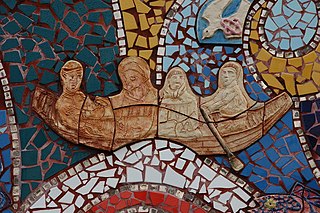 W
WSaint Comgall, an early Irish saint, was the founder and abbot of the great Irish monastery at Bangor in Ireland.
 W
WGeorge Croly was an Irish poet, novelist, historian, and Anglican priest. He was rector of St Stephen Walbrook in the City of London from 1835 until his death.
 W
WAnthony Gerard Richard Cronin was an Irish poet, arts activist, biographer, commentator, critic, editor and barrister.
 W
WTony Curtis is an Irish poet.
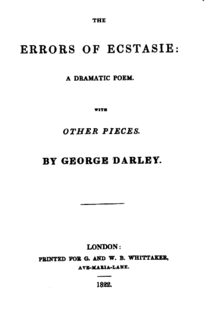 W
WGeorge Darley (1795–1846) was an Irish poet, novelist, literary critic, and author of mathematical texts.
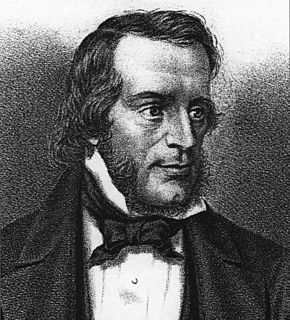 W
WThomas Osborne Davis was an Irish writer who was the chief organiser of the Young Ireland movement.
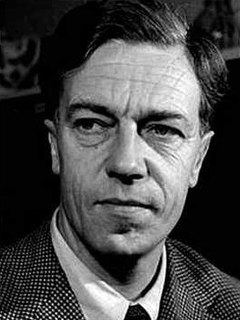 W
WCecil Day-Lewis, often written as C. Day-Lewis, was an Anglo-Irish poet and Poet Laureate from 1968 until his death in 1972. He also wrote mystery stories under the pseudonym of Nicholas Blake.
 W
WDiarmait mac Cerbaill was King of Tara or High King of Ireland. According to traditions, he was the last High King to follow the pagan rituals of inauguration, the ban-feis or marriage to goddess of the land.
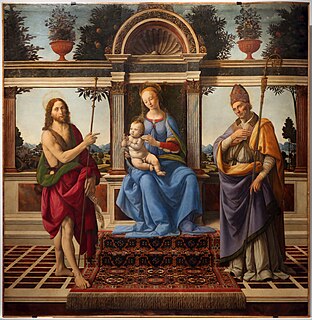 W
WSaint Donatus of Fiesole was an Irish teacher and poet, and Bishop of Fiesole, about 829–876.
 W
WSir Charles Gavan Duffy KCMG, was an Irish nationalist, journalist, poet and politician; a Young Irelander who, following emigration to Australia, was to become the 8th Premier of Victoria and one of the commanding figures in Victorian political history.
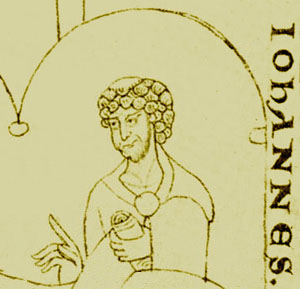 W
WJohn Scotus Eriugena or Johannes Scotus Erigena was an Irish theologian, neoplatonist philosopher, and poet. He succeeded Alcuin of York (735–804) as head of the Palace School at Aachen.
 W
WOliver Goldsmith was an Anglo-Irish novelist, playwright and poet, who is best known for his novel The Vicar of Wakefield (1766), his pastoral poem The Deserted Village (1770), and his plays The Good-Natur'd Man (1768) and She Stoops to Conquer. He is thought to have written the classic children's tale The History of Little Goody Two-Shoes (1765).
 W
WGerald Griffin was an Irish novelist, poet and playwright.
 W
WMichael Hartnett was an Irish poet who wrote in both English and Irish. He was one of the most significant voices in late 20th-century Irish writing and has been called "Munster's de facto poet laureate".
 W
WPat Ingoldsby is an Irish poet and TV presenter. He has hosted children's TV shows, written plays for the stage and for radio, published books of short stories, and been a newspaper columnist. Since the mid-1990s, he has withdrawn from the mass media, and is most widely known for his collections of poetry, and his selling of them on the streets of Dublin.
 W
WJames Augustine Aloysius Joyce was an Irish novelist, short story writer, poet, teacher, and literary critic. He contributed to the modernist avant-garde movement and is regarded as one of the most influential and important writers of the 20th century. Joyce is best known for Ulysses (1922), a landmark work in which the episodes of Homer's Odyssey are paralleled in a variety of literary styles, most famously stream of consciousness. Other well-known works are the short-story collection Dubliners (1914), and the novels A Portrait of the Artist as a Young Man (1916) and Finnegans Wake (1939). His other writings include three books of poetry, a play, his published letters and occasional journalism.
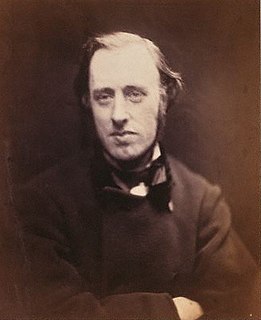 W
WWilliam Edward Hartpole Lecky was an Irish historian, essayist, and political theorist with Whig proclivities. His major work was an eight-volume History of England during the Eighteenth Century.
 W
WMicheál Mac Liammóir was a British-Irish actor, dramatist, impresario, writer, poet and painter. Though born to a Protestant family living in London, with no Irish connections, he emigrated to Ireland in early adulthood, changed his name, and remained there for the rest of his life. He co-founded the Gate Theatre with his partner Hilton Edwards. He is one of the most recognizable figures in the arts in twentieth-century Ireland.
 W
WPhilip McDonagh is a poet and former Irish diplomat. His father, Bob McDonagh, and brother, Bobby McDonagh, also served as diplomats.
 W
WEdwin James Milliken, was a Punch editor, journalist, satirical humorist and poet. He is best known for his oft-quoted poem "Death and his brother sleep", notably quoted by Winston Churchill in the prelude to World War II when he felt that parliament was not taking the prospect of a war against Hitler seriously enough. He produced a series of comic poems published as The 'Arry Papers between 1874 and 1897. He worked as journalist on the London Figaro in 1872 and joined Punch in 1877. His creation of 'Arry, a bombastic Cockney, resulted in a successful series of poems which were hailed for their phonetic precision. Milliken described 'Arry as "really appalling. He is not a creature to be laughed at or with." In 1883 he published The Modern Ars Amandi.
 W
WThomas Moore was an Irish writer, poet and lyricist celebrated for his Irish Melodies. Their setting of English-language verse to old Irish tunes marked the transition in popular Irish culture from Irish to English. Politically, Moore was recognised in England as a press, or "squib", writer for the aristocratic Whigs; in Ireland he was accounted a Catholic patriot. Married to a Protestant actress and hailed as "Anacreon Moore" after the classical Greek composer of drinking songs and erotic verse, Moore made no profession of piety. But in the controversies that surrounded Catholic Emancipation he was seen to defend the tradition of the Church in Ireland against both evangelising Protestants and uncompromising lay Catholics. Longer prose works reveal more radical sympathies: a Life and Death of Lord Edward Fitzgerald, the United Irish leader depicted as a martyr in the cause of democratic reform; and, complementing Maria Edgeworth's Castle Rackrent, Memoirs of Captain Rock, a saga, not of Anglo-Irish landowners, but of their exhausted tenants driven to the semi-insurrection of "Whiteboyism". Today, however, Moore is remembered almost alone either for his Irish Melodies or, less generously, for the role he is thought to have played in the loss of the memoirs of his friend Lord Byron.
 W
WSeán Pádraig Ó Ríordáin was an Irish language poet during the twentieth century. He brought European themes into Irish poetry.
 W
WFitz James O'Brien was an Irish American Civil War soldier, writer, and poet often cited as an early writer of science fiction.
 W
WJoseph O'Neill is an Irish novelist and non-fiction writer. O'Neill's novel Netherland was awarded the 2009 PEN/Faulkner Award for Fiction.
 W
WJohn Boyle O'Reilly was an Irish-American poet, journalist, author and activist. As a youth in Ireland, he was a member of the Irish Republican Brotherhood, or Fenians, for which he was transported to Western Australia. After escaping to the United States, he became a prominent spokesperson for the Irish community and culture, through his editorship of the Boston newspaper The Pilot, his prolific writing, and his lecture tours.
 W
WCathal Ó Searcaigh, is a modern Irish language poet. His work has been widely translated, anthologised and studied. "His confident internationalism", according to Theo Dorgan, has channelled "new modes, new possibilities, into the writing of Irish language poetry in our time".
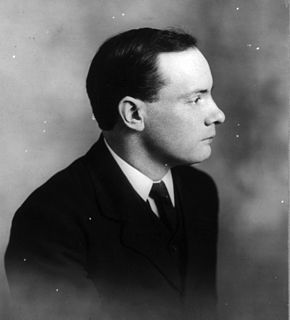 W
WPatrick Henry Pearse was an Irish teacher, barrister, poet, writer, nationalist, republican political activist and revolutionary who was one of the leaders of the Easter Rising in 1916. Following his execution along with fifteen others, Pearse came to be seen by many as the embodiment of the rebellion.
 W
WEsmé Stuart Lennox Robinson was an Irish dramatist, poet and theatre producer and director who was involved with the Abbey Theatre.
 W
WJames Jeffrey Roche was an Irish-American poet, journalist and diplomat. Roche emigrated as a young child, and grew up in Prince Edward Island, Canada. He came to Boston in 1866, and joined the staff of the Irish newspaper. He became editor-in-chief in 1890, and was a leading spokesman for Catholic intellectuals in New England. When most Democrats in the region deserted William Jennings Bryan in 1896, Roche and the Boston Pilot gave Brian strong support. At the end of his life he was the American Consul in Switzerland.
 W
WSir Martin Archer Shee was an Irish portrait painter and president of the Royal Academy.
 W
WRichard Brinsley Butler Sheridan was an Irish satirist, a playwright, poet, and long-term owner of the London Theatre Royal, Drury Lane. He is known for his plays such as The Rivals, The School for Scandal, The Duenna and A Trip to Scarborough. He was also a Whig MP for 32 years in the British House of Commons for Stafford (1780–1806), Westminster (1806–1807), and Ilchester (1807–1812). He is buried at Poets' Corner in Westminster Abbey. His plays remain a central part of the canon and are regularly performed worldwide.
 W
WGerard Smyth is an Irish poet, born in Dublin in 1951 and began publishing poetry in the late 1960s when his first poems were published by David Marcus in the New Irish Writing Page of The Irish Press and by James Simmons in The Honest Ulsterman.
 W
WJames Stephens was an Irish novelist and poet.
 W
WJonathan Swift was an Anglo-Irish satirist, essayist, political pamphleteer, poet and cleric who became Dean of St Patrick's Cathedral, Dublin, hence his common sobriquet, "Dean Swift".
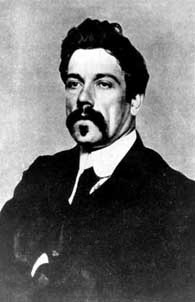 W
WEdmund John Millington Synge was an Irish playwright, poet, writer, collector of folklore, and a key figure in the Irish Literary Revival. His best known play The Playboy of the Western World was disapproved due to its bleak ending, depiction of Irish peasants, and idealisation of parricide, leading to hostile audience reactions and riots in Dublin during its opening run at Abbey Theatre, Dublin, which he had co-founded with W. B. Yeats and Lady Gregory. His other major works include "In the Shadow of the Glen" (1903), "Riders to the Sea" (1904), "The Well of the Saints" (1905), and "The Tinker's Wedding" (1909).
 W
WNahum Tate was an Irish poet, hymnist and lyricist, who became Poet Laureate in 1692. Tate is best known for The History of King Lear, his 1681 adaptation of Shakespeare's King Lear.
Alan Titley MRIA is an Irish-language novelist, translator, playwright and professor. He also wrote columns under the name Crobhingne.
 W
WColm Tóibín FRSL, is an Irish novelist, short story writer, essayist, playwright, journalist, critic, and poet.
 W
WÁed Ua Crimthainn, also called Áed mac Crimthainn, was abbot and coarb of Terryglass, near Lough Derg in County Tipperary, Ireland. He was the principal scribe of the Book of Leinster, the Book of Oughaval, an important Middle Irish medieval illuminated manuscript, and is also believed to have been its sole compiler.
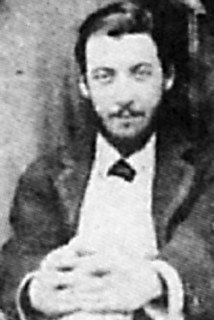 W
WWilliam Charles Kingsbury Wilde was an Irish journalist and poet of the Victorian era and the older brother of Oscar Wilde.
 W
WWilliam Butler Yeats was an Irish poet, dramatist, prose writer and one of the foremost figures of 20th-century literature. A pillar of the Irish literary establishment, he helped to found the Abbey Theatre, and in his later years served two terms as a Senator of the Irish Free State. He was a driving force behind the Irish Literary Revival along with Lady Gregory, Edward Martyn and others.
 W
WMichael J Moran, popularly known as Zozimus, was an Irish street rhymer. He was a resident of Dublin and also known as the "Blind Bard of the Liberties" and the "Last of the Gleemen".